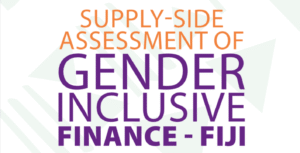

written by
EVIE CHOMCHUEN
Fridge For Future: Thailand’s YENERGY Project and Energy Efficiency
Climate change is not merely an environmental issue. As its profound effects show potentially irreversible damages to societies, economies and livelihood, climate change is considered the most critical threat to the world that requires all to take actions.
Among the top five industry sectors contributing to the most greenhouse gases, the food system accounts for more than third — 34% — of all human-made emissions; all the way from production, distribution to consumption. Being both vulnerable to climate change and an accomplice to global warming, the food industries and businesses are encouraged to explicitly integrate climate risks into all decision-making processes and collaborate with solution and innovation providers to develop effective climate managements.
In Thailand, where the food and beverage sector contributes to over 20% of its GDP and the largest sector in ASEAN, one innovative project is pioneering in transforming the country’s energy consumption — one fridge at a time.

YENERGY
As demands for refrigerators grow and cause emission spikes,energy efficiency initiatives come into play.
Thailand’s YENERGYrefrigeration project spearheads low carbon energy in the country, introducing game-changing refrigerators and freezers that consume less energy and boost cost-effective performance.
Yenergy — with the word ‘yen’ meaning ‘cool’ in Thai — pairs vendors with energy-saving refrigerators, facilitates responsible disposal, and promises cheaper utility bills.
As part of the £15m ASEAN Low Carbon Energy Program under the UK Foreign Commonwealth and Development Office’s prosperity programming, the Yenergy project estimates that by switching to energy efficient units, businesses can cut up to 40% of electrical costs, with added bonus of reducing carbon footprints on the planet, strengthening brand values, and upholding sustainable standards.
Economy meets Environment
Manufactured by Sanden Intercool and distributed through Climate Change Solutions(CCS), the Yenergy project offers various models of the energy-efficient refrigerators and freezers.
With a small down payment and the balance paid over a 36-month instalment plan, businesses will benefit from energy cost savings from Day-1 and then shoot up from year 4 over the entire decade. Under the ‘payment through savings’ model, the savings essentially cover the monthly repayment, hence delivering a self-sufficient investment.
Depending on the model, businesses can save up to 40% on their annual electrical bills and reduce up to 12.4 tons of carbon emissions over the course of ten years, equivalent to driving 50,017 kilometres in an average car.
These economic and environmental factors are the key attractions among the food and beverage businesses in Bangkok. From direct engagements with over 120 companies, records show considerable interest in an innovation that allows cost-effective investment and a chance to help the environment.
Energy Efficiency: “Moving in the Right Direction”
More businesses in Thailand are investing into renewable energy and shifting towards cleaner energy resources, said Christopher Seeley, climate change expert and CEO of Climate Change Solutions Co Ltd (CCS).
Despite the majority of Thailand still predominantly rely on utility providers that generate energy largely from coal and gas, the country’s large and medium companies are increasingly adopting sustainable solutions ranging from solar cells to new technologies, including the energy efficient Yenergy Fridges. Though COVID-19 has made businesses think twice about new investment decisions, the Yenergy project has been well received from the market outreach on both economic and environmental levels.
According to Christopher, businesses see incentives from the ‘payment through savings’ structure that allows them to generate additional cash flows while still covering monthly repayments. While environmentally, they find the natural refrigerant significantly less harmful than the existing non-energy-efficient refrigerators anyway.
Thailand’s food and beverage sector is extremely competitive and the big corporates in the public eye need to be seen as leaders in their field. So, by implementing an environmental approach, Christopher said it can differentiate and place a business at an advantage over the competition. While raising the bar, green-minded businesses also lead sustainable moves.

Seeing more awareness about climate change and rising pressure for businesses to take environmental responsibilities, Christopher holds a promising outlook that the demonstrated benefits from the cost-saving and environmentally friendly innovations will ripple an impactful change across ranges of industries.

Equality and Energy
Women are more sustainable consumers than men, a study shows, as they tend to value eco-labelled products more and are willing to behaviorally adapt in favor of sustainable options.
Coincide with this finding, women-led companies and female founders, from the market research in Bangkok, show higher interests in energy efficiency products and solutions. By projecting eco-friendly values and practices, their businesses are perceived to have higher standards, while being financially viable, in the highly competitive food and beverage market. Strengthening diversity can help energize the energy efficiency sector and make it more impactful.





